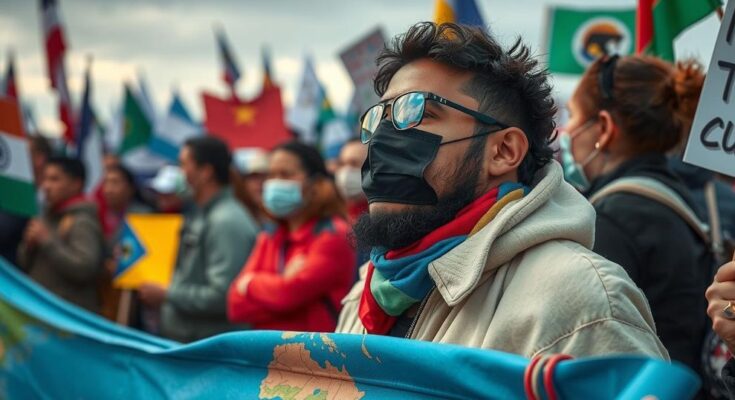The repression of climate and environmental protests is intensifying worldwide, as highlighted in a recent University of Bristol report. This phenomenon spans democratic and non-democratic countries and manifests in four primary forms: anti-protest laws, legal prosecution, harsher policing, and violence against activists. Despite increasing protests since 2018, activists face increased criminalization, relegating their urgent demands for climate action to the margins of public discourse.
Throughout the globe, the suppression of climate and environmental protests is escalating, with new alarming trends emerging. A recent collaborative report from the University of Bristol reveals that this repression is not confined to specific nations, as it encompasses both democratic and non-democratic regimes worldwide. The distinction between climate protests, which advocate for broader policy changes regarding carbon emissions, and environmental protests targeting specific damaging projects, is significant, with each facing unique forms of repression.
The intensification of this repression can be categorized into four primary forms. First, numerous countries have enacted anti-protest laws since 2019, granting increased powers to law enforcement and introducing new offenses aimed at discouraging activism. Second, legal systems have been manipulated to criminalize peaceful protests, with former anti-terrorism laws being inappropriately applied against climate activists.
Third, policing tactics have become significantly harsher, ranging from heightened surveillance to physical violence against protesters, with both public and private security groups involved. Lastly, the ultimate form of suppression manifests in the tragic murders of activists, particularly in regions like Brazil and the Philippines, where organized crime and police actions drive violence.
Despite these oppressive measures, climate protests have surged since 2018, indicating a growing public outcry for environmental policy reform. The data underscores that while arrests and police violence vary globally, the overarching trend points to an increasingly hostile environment for climate activists. This repression occurs in a context where governments lag in addressing climate challenges, inadvertently validating the urgency expressed by these activists for substantive environmental action.
The phenomenon of repressing climate and environmental protests has recently garnered increased attention, with several countries enacting laws that inhibit activism. Notably, the United Kingdom and Australia have featured prominently in discussions regarding the criminalization of climate justice efforts. However, the recent report from the University of Bristol expands on this issue by providing evidence that such suppression is a widespread global issue, manifesting differently across various nations.
In summary, the repression of climate and environmental protests is a concerning trend on a global scale, influenced by a combination of legal, political, and social factors. Activists are facing significant challenges, including the enactment of restrictive laws and brutal policing tactics, while governments fail to address climate change adequately. This environment not only marginalizes activists but also obscures urgent calls for climate justice, reinforcing the need for a more supportive legislative and social framework for environmental advocacy.
Original Source: theconversation.com




